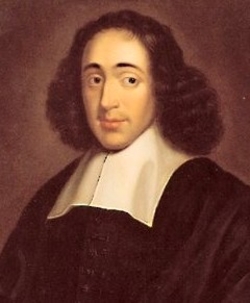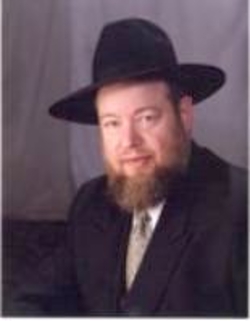 Baruch Spinoza. |
These alternatives and other developments, in particular the Holocaust, caused the ranks of the Orthodox to be reduced to a small minority. Their percentage of the total world Jewish population reached a nadir in the post-World War II era, when it declined to about 5%.
The subsequent 60 years, however, witnessed a resurgence of the Orthodox element. This was, again, due to many factors, especially a tendency among the non-Orthodox to marry non-Jews and have fewer children. Recent figures on America published by the National Jewish Population Survey also point in this direction. The Orthodox proportion of American synagogue members, for example, went from 11% in 1971 to 16% in 1990 to 21% in 2000-01. (In absolute numbers, it bears noting, the American Jewish population went steadily down during these decades.)
Should this trend continue, it is conceivable that the ratio will return to roughly where it was two centuries ago, with the Orthodox again constituting the great majority of Jews. Were that to happen, the non-Orthodox phenomenon could seem in retrospect merely an episode, an interesting, eventful, consequential, and yet doomed search for alternatives, suggesting that living by the law may be essential for maintaining a Jewish identity over the long term.
 Rabbi Shmuel Bloom. |
Rabbi Bloom told an Aguda audience that Jewish demographic trends imply that American Orthodox Jews can no longer, as in the past, bury themselves in their parochial interests and expect non-Orthodox Jewish institutions to shoulder the major burden of communal responsibilities. Rather, the Orthodox must now join in, or even take over from, their non-Orthodox coreligionists such tasks as fighting anti-Semitism, sending funds to Israel, and lobbying the American government. "The things we rely on secular Jews for," he asked, "who's going to do that if the secular community whittles down? We have to broaden our agenda to include things that up until now we've relied upon secular Jews to do."
He exaggerates, in that some Orthodox Jews in America have been prominently involved in both national (think of Senator Joseph Lieberman, Democrat of Connecticut) and communal affairs (Morton Klein of the Zionist Organization of America comes to mind). But he is accurate insofar as Orthodox institutions have generally stayed out of the American fray except to pursue their narrow agenda.
 David Zwiebel. |
Mr. Heilman understands this intent to assume a greater role in national and Jewish life as "a sign both of the success of the American haredi community in sustaining its numbers and its failure to translate that success into greater influence in the community at large."
It also could portend a much deeper shift in Jewish life in America and beyond, being a leading indicator of Orthodoxy's political coming of age and perhaps even its eventual replacement of non-Orthodox Judaism.
_________
Apr. 27, 2006 update: I update and further pursue this topic at "More about the Future of Judaism."
